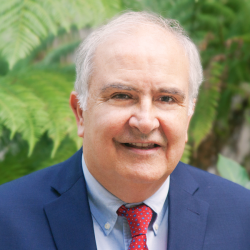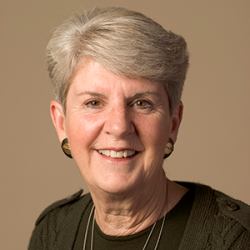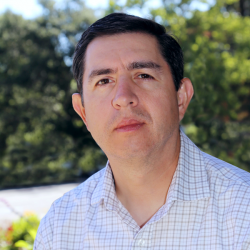
The Stanford Histocompatibility, Immunogenetics, and Disease Profiling Laboratory (HIDPL) performs state of the art and cutting edge histocompatibility and genetic testing for solid organ and bone marrow transplantation as well as for disease associations and drug resistance/susceptibility. The HIDPL offers a wide selection of testing services, has an active research and development program and houses and curates a bio-repository of patient specimens. It services Stanford Health Care, Lucile Packard Children’s Hospital Stanford, Kaiser, as well as other transplant centers. It is accredited by the American Society for Histocompatibility and Immunogenetics (ASHI), CLIA, and the state of CA for high complexity testing. The HIDPL performs greater than 60,000 tests per year and employs a staff of more than 50 full-time employees.
HLA LAB MEDICAL LEADERSHIP
 Marcelo Fernández-Viña, Ph.D., D (ABHI) is a Professor for the Department of Pathology at Stanford University Medical School and serves as co-Director of the Histocompatibility, Immunogenetics and Disease Profiling Laboratory at this institution. He has been working in the fields of Histocompatibility and Immunogenetics since 1982. He earned a degree in Biochemistry from the School of Basic Sciences in Rosario, Argentina, and his Ph.D. in Internal Medicine from the University of Buenos Aires Medical School in Argentina. Previously he held a position as a Professor in the Department of Laboratory Medicine at the University of Texas M.D. Anderson Cancer Center in Houston. He has 170 peer reviewed publications, many of them focusing on HLA variation in multiple world populations, identifying susceptibility and resistance factors for diseases and in the impact of HLA mismatches in allogeneic transplantation; and 59 book chapters. He served as expert Consultant for Donor Searches for NMDP and as President Elect, President and Past President of the American Society for Histocompatibility and Immunogenetics. He served as a member of the Board of Directors and the Executive Committee for the United Network for Organ Sharing. Currently, he serves as Co-Chair of the Immunobiology Committee of the CIBMTR; and is the Liaison between the American Society for Histocompatibility and Immunogenetics to the National Marrow Donor Program. He serves as HLA Expert Consultant for the NMDP for the HRSA contract and is a member of the Histocompatibility Advisory Group for NMDP. He is Councilor of the International Histocompatibility Workshop and a member of the WHO Nomenclature Committee for Factors of the HLA System, Section Editor of Human Immunology and an Advisory Board Member of the International Journal of Immunogenetics.
Marcelo Fernández-Viña, Ph.D., D (ABHI) is a Professor for the Department of Pathology at Stanford University Medical School and serves as co-Director of the Histocompatibility, Immunogenetics and Disease Profiling Laboratory at this institution. He has been working in the fields of Histocompatibility and Immunogenetics since 1982. He earned a degree in Biochemistry from the School of Basic Sciences in Rosario, Argentina, and his Ph.D. in Internal Medicine from the University of Buenos Aires Medical School in Argentina. Previously he held a position as a Professor in the Department of Laboratory Medicine at the University of Texas M.D. Anderson Cancer Center in Houston. He has 170 peer reviewed publications, many of them focusing on HLA variation in multiple world populations, identifying susceptibility and resistance factors for diseases and in the impact of HLA mismatches in allogeneic transplantation; and 59 book chapters. He served as expert Consultant for Donor Searches for NMDP and as President Elect, President and Past President of the American Society for Histocompatibility and Immunogenetics. He served as a member of the Board of Directors and the Executive Committee for the United Network for Organ Sharing. Currently, he serves as Co-Chair of the Immunobiology Committee of the CIBMTR; and is the Liaison between the American Society for Histocompatibility and Immunogenetics to the National Marrow Donor Program. He serves as HLA Expert Consultant for the NMDP for the HRSA contract and is a member of the Histocompatibility Advisory Group for NMDP. He is Councilor of the International Histocompatibility Workshop and a member of the WHO Nomenclature Committee for Factors of the HLA System, Section Editor of Human Immunology and an Advisory Board Member of the International Journal of Immunogenetics.
 Dr. Dolly Tyan is a Professor of Pathology and a Director of the Stanford University Histocompatibility, Immunogenetics & Disease Profiling Laboratory. She has been active in histocompatibility since 1972 and trained with Rose Payne and Carl Grumet. She served as President of the American Society for Histocompatibility and Immunogenetics in 2001, on the Board and various committees of UNOS, and the Histocompatibility committee of the NMDP. She is Chair of the national UNOS/OPTN Histocompatibility Committee. Her presentation to the UNOS Board was fundamental to the implementation of the virtual crossmatching policy now in place nationally. She was an invited member of the international consensus conference in May, 2012, on testing and clinical management associated with antibodies in transplantation. Her career has focused on antibody characterization as it relates to transplantation as well as definition of HLA and KIR genes. From her first publications on antibody production in vitro in the early 1970s and DR epitope definition using monoclonal antibodies in 1980, she has continued to define new serologic specificities. Most recently her studies have focused on the definition of clinically relevant HLA antibodies and their antigen/allele targets. Her specialty area of expertise is the use of IVIG to down regulate antibody production in highly sensitized patients and characterization of residual antibody for determination of optimal time to transplant or reversal of antibody mediated rejection. She is co-inventor of the IVIG therapy for treatment of highly HLA sensitized patients both before and after transplant and is also co-inventor of the C1q assay for determination of clinically relevant complement fixing HLA antibody using single antigen beads. She is deeply immersed in NGS for HLA genomic definition with a goal of defining the epitope targets of donor specific antibody. Her clinical responsibilities include directing a comprehensive histocompatibility laboratory of 55 FTEs servicing 9 different solid organ and bone marrow/stem cell transplant programs at Stanford.
Dr. Dolly Tyan is a Professor of Pathology and a Director of the Stanford University Histocompatibility, Immunogenetics & Disease Profiling Laboratory. She has been active in histocompatibility since 1972 and trained with Rose Payne and Carl Grumet. She served as President of the American Society for Histocompatibility and Immunogenetics in 2001, on the Board and various committees of UNOS, and the Histocompatibility committee of the NMDP. She is Chair of the national UNOS/OPTN Histocompatibility Committee. Her presentation to the UNOS Board was fundamental to the implementation of the virtual crossmatching policy now in place nationally. She was an invited member of the international consensus conference in May, 2012, on testing and clinical management associated with antibodies in transplantation. Her career has focused on antibody characterization as it relates to transplantation as well as definition of HLA and KIR genes. From her first publications on antibody production in vitro in the early 1970s and DR epitope definition using monoclonal antibodies in 1980, she has continued to define new serologic specificities. Most recently her studies have focused on the definition of clinically relevant HLA antibodies and their antigen/allele targets. Her specialty area of expertise is the use of IVIG to down regulate antibody production in highly sensitized patients and characterization of residual antibody for determination of optimal time to transplant or reversal of antibody mediated rejection. She is co-inventor of the IVIG therapy for treatment of highly HLA sensitized patients both before and after transplant and is also co-inventor of the C1q assay for determination of clinically relevant complement fixing HLA antibody using single antigen beads. She is deeply immersed in NGS for HLA genomic definition with a goal of defining the epitope targets of donor specific antibody. Her clinical responsibilities include directing a comprehensive histocompatibility laboratory of 55 FTEs servicing 9 different solid organ and bone marrow/stem cell transplant programs at Stanford.
 Dr. Daniel Ramon, Ph.D., D[ABHI], HCLD[ABB], is a Clinical Associate Professor for the Department of Pathology at Stanford University Medical School, and serves as Associate Director of the Histocompatibility, Immunogenetics and Disease Profiling Laboratory and Clinical Director of Histocompatibility. He has been working in he fields of Histocompatibility since 1995. He received his Bachelor of Sciences and Master of Sciences degrees in Biochemistry from the National University of San Luis, Argentina. He went on to receive his Ph.D. in Biochemistry from the same University, describing new methods to type HLA Class II alleles. His graduate studies were complimented by post-graduate residency training in clinical pathology, with specialization in histocompatibility and immunogenetics at the Center for Medical Education and Clinical Research in Buenos Aires Argentina. In the course of his residency training, Dr. Ramon was invited twice to the Anthony Nolan Research Institute at The Royal Free Hospital in London as a Visiting Research Scientist.
Dr. Daniel Ramon, Ph.D., D[ABHI], HCLD[ABB], is a Clinical Associate Professor for the Department of Pathology at Stanford University Medical School, and serves as Associate Director of the Histocompatibility, Immunogenetics and Disease Profiling Laboratory and Clinical Director of Histocompatibility. He has been working in he fields of Histocompatibility since 1995. He received his Bachelor of Sciences and Master of Sciences degrees in Biochemistry from the National University of San Luis, Argentina. He went on to receive his Ph.D. in Biochemistry from the same University, describing new methods to type HLA Class II alleles. His graduate studies were complimented by post-graduate residency training in clinical pathology, with specialization in histocompatibility and immunogenetics at the Center for Medical Education and Clinical Research in Buenos Aires Argentina. In the course of his residency training, Dr. Ramon was invited twice to the Anthony Nolan Research Institute at The Royal Free Hospital in London as a Visiting Research Scientist.
After finishing his graduate and post-graduate education, Dr. Ramon relocated to the United States, working for a short time in industry exploring new technologies for HLA typing, and co-authoring two patents. He completed a Histocompatibility Director in Training Fellowship at Northwestern University in Chicago. After his fellowship, Dr. Ramon was certified as a Diplomat of the American Board of Histocompatibility and Immunogenetics (ABHI) and as a High-complexity Clinical Laboratory Director by the American Board of Bioanalysis (ABB). In 2009, he was appointed Assistant Professor and Assistant Director of the Transplant Immunology Laboratory in the Division of Organ Transplantation in the Department of Surgery at Northwestern University Medical School. In September 2010, he joined the University of Michigan Medical School faculty as Assistant Professor in the clinical track and Director of the Histocompatibility Laboratory in the Department of Pathology.
Over the course of his career he has made multiple important contributions to peer-reviewed literature. He currently serves as a member of the American Society for Histocompatibility and Immunogenetics (ASHI) Accreditation Review Board.
17TH IHIWS SPONSORSHIP
This September, The Stanford Histocompatibility, Immunogenetics and Disease Profiling Laboratory will be hosting the 17th International Histocompatibility and Immunogenetics Workshop and Conference (17th IHIWS) in Pacific Grove, California.
The 17th Workshop promises to further advance the continued international collaboration in research in HLA and Immunogenetics projects. The major goals are to define HLA and KIR genomics, map serologic epitopes using NGS and single antigen bead technologies, and develop robust research and clinical informatics tools for HLA and KIR.
